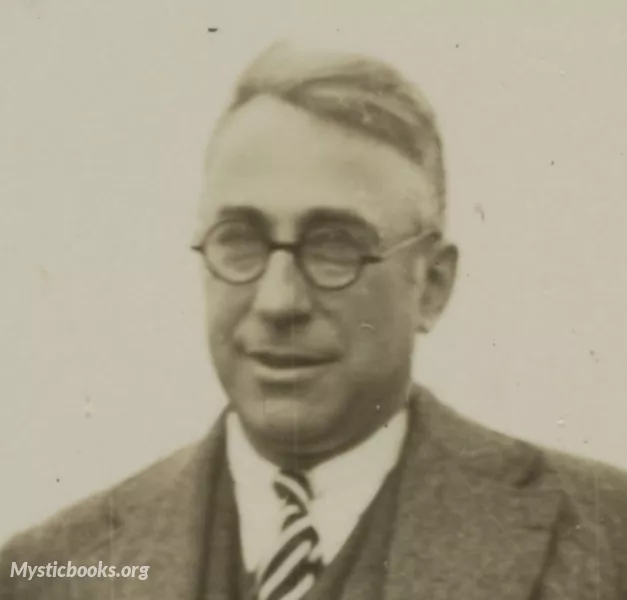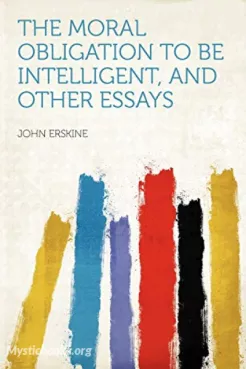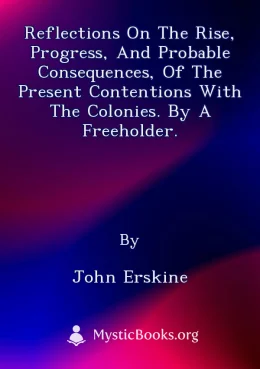
Timeline
Title
Country/Nationality
John Erskine
John Erskine was a renowned American educator, author, pianist, and composer who made significant contributions to various fields throughout his life. From his influential role as an English professor to his remarkable literary works and musical compositions, Erskine left an indelible mark on academia and the arts. This essay provides a comprehensive overview of John Erskine's life, principles, notable works, and his enduring legacy.
Who Was John Erskine?
Born on October 5, 1879, John Erskine was a multi-talented individual who excelled in several disciplines. He began his career as an English professor, teaching at Amherst College from 1903 to 1909, before joining Columbia University in 1909, where he remained until 1937. Erskine's passion for literature and education fueled his desire to inspire and enlighten students, shaping their intellectual growth and love for the humanities.
Principles and Philosophy:
John Erskine firmly believed in the transformative power of education and the humanities. He emphasized the importance of a well-rounded education that nurtured critical thinking, creativity, and a deep appreciation for the arts. Erskine advocated for the integration of literature and cultural studies into the curriculum, recognizing their ability to broaden perspectives, foster empathy, and encourage lifelong learning.
Famous for:
Erskine gained widespread recognition for his notable works in literature, music, and education. One of his most famous works is the novel "The Private Life of Helen of Troy" (1926), a captivating exploration of the complexities of human nature and the power of mythology. The book received critical acclaim and established Erskine as a skilled writer of historical fiction.
Another notable accomplishment was Erskine's composition of the popular and widely performed orchestral piece titled "The Bach Brandenburg Concerto No. 4," showcasing his musical talent and creative expression.
Notable Works:
- "The Moral Obligation to be Intelligent" (1915): In this influential essay, Erskine emphasizes the moral duty of individuals to cultivate their intellectual capacities and strive for personal growth. He argues that intelligence should not be seen as a privilege but as a responsibility towards oneself and society.
- "Adam and Eve and Pinch Me" (1921): Erskine's collection of short stories delves into the intricacies of human relationships and the challenges of modern life. Through vivid storytelling and nuanced character portrayals, he explores themes of love, loss, and the complexities of the human condition.
- "The Elizabethan Lyric" (1903): This scholarly work showcases Erskine's expertise in English literature. It offers a comprehensive analysis of Elizabethan poetry, providing valuable insights into the cultural and literary landscape of the era.
Legacy and Remembrance:
John Erskine's contributions to literature, music, and education continue to be celebrated and remembered today. His influence as an educator extended beyond the classroom, as he sought to instill in his students a passion for knowledge and a love for the arts.
Erskine passed away on June 2, 1951, but his legacy lives on through his writings and compositions, which continue to inspire and captivate readers and listeners alike. His commitment to intellectual growth, artistic expression, and the power of education serves as a lasting reminder of the transformative potential within each individual.
Conclusion:
John Erskine was a multifaceted talent whose contributions as an educator, author, pianist, and composer enriched the realms of academia and the arts. Through his profound belief in the value of education and the humanities, Erskine left an enduring impact on generations of students and readers. His notable works, philosophical insights, and dedication to intellectual growth and artistic expression ensure his legacy as a visionary and influential figure in American literature and education.
Books by John Erskine

The Moral Obligation to be Intelligent and Other Essays
This is a thought-provoking collection of essays that challenges readers to reflect on the significance of intellect and its impact on personal growth and society at large. With compelling arguments and profound insights, Erskine encourages us to emb...

Reflections on the rise, progress, and probable consequences, of the present contentions with the colonies. By a freeholder.
This book, penned by a 'freeholder', explores the escalating tensions between Britain and its American colonies. It attempts to de-escalate the brewing conflict by analyzing the grievances of the colonists as outlined in their writings and by those f...